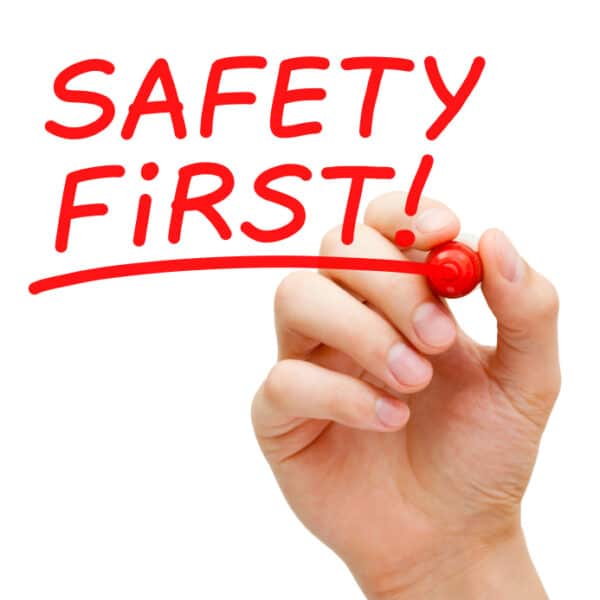 In the previous article the responsibilities of the employer were reviewed. In this article we will outline the responsibilities of the employee in greater detail. Everyone at work has a responsibility for health and safety. A positive health and safety culture exists when everyone at work accepts their responsibilities and work together in a mutually beneficial way of ensuring a safe work environment. The Health and Safety at Work Act 1974 outlines the general duties of the employee at work.
In the previous article the responsibilities of the employer were reviewed. In this article we will outline the responsibilities of the employee in greater detail. Everyone at work has a responsibility for health and safety. A positive health and safety culture exists when everyone at work accepts their responsibilities and work together in a mutually beneficial way of ensuring a safe work environment. The Health and Safety at Work Act 1974 outlines the general duties of the employee at work.
Legislation relating to employees
Section 7
General duties of employees at work
It shall be the duty of every employee while at work—
(a) to take reasonable care for the health and safety of himself and of other persons who may be affected by his acts or omissions at work; and
(b) as regards any duty or requirement imposed on his employer or any other person by or under any of the relevant statutory provisions, to co-operate with him so far as is necessary to enable that duty or requirement to be performed or complied with.
Section 8
Duty not to interfere with or misuse things provided pursuant to certain provisions.
No person shall intentionally or recklessly interfere with or misuse anything provided in the interests of health, safety or welfare in pursuance of any of the relevant statutory provisions.
Duty of care to themselves
An employee must take reasonable care of their own health and safety. This means they should not put themselves at risk of harm. An employer should not request that a staff member carries out a job that they have not being trained to do. An employee who is given a work activity must be competent, which means that they have the right amount of knowledge, training and experience to do the work. They also may need to be supervised for a period of time to be deemed competent in specific tasks. If a person is requested to carry out a work activity and they don’t feel competent they must inform their manager and not do the task until they are trained.
Duty of care to others
An employee must take reasonable care not to put other people, such as colleagues and members of the public, at risk by what they do or don’t do in the course of their work. An employee has a duty of care to other people when they are carrying out their duties. They must always ensure that they work in a safe manner in the way that they have been trained. The employer should provide procedures and processes for employees to follow. The employee must cooperate with the employer in ensuring that they follow all workplace procedures and not deviate from them.
Interfering with or misusing equipment
An employer will provide suitable and sufficient equipment for their staff to use to complete their work activities in a safe manner. An employee must not interfere with or misuse anything that’s been provided for their health, safety or welfare. An example of this would be using fire extinguishers at an office party to spray their colleagues as a joke, or adapting cable extension leads to hold more leads than is safe.
Report it
Employees must report any work related injuries, illnesses, diseases and dangerous occurrences that happen in the course of their work. If an employee is exposed to a biological agent or hazardous substance then they must report this to the employer. The employer can then investigate what happened and put the appropriate measures in place to minimise the risk of the incident occurring again. The employee must also report any observed hazards in the workplace, such as ripped carpets, broken equipment and unhygienic welfare facilities.
Personal protective equipment
An employee should be provided with personal protective equipment (PPE) free of charge. The employee must adhere to safety signs to wear any mandatory PPE in the correct manner as instructed through training provided by the employer. An example is when dealing with biological agents, blood and bodily fluids the employee needs to wear the gloves, apron, mask and eye protection as specified in the instructions for cleaning. QCS has specific policies for providing instruction for cleaning in infection control.
Agency or temporary worker
The employer also has a duty of care to an agency or temporary worker to provide a safe working environment. An agency or temporary worker has a duty to work in a safe manner. They must follow all instructions given by the agency and the place where they are working.
Conclusion
QCS provides full health and safety management systems to help your business create the framework for solid health and safety management. Employees have a duty to understand the policies and procedures and use the forms within the system. QCS has designed the policies and forms in a user friendly manner so that that all employees are able to implement them.
References
Information on the health and safety at work act
Information on the responsibilities of workers






